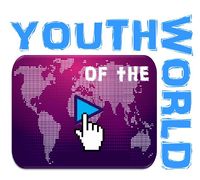Youth of the World! International Summer School
|
Description
In April, 2014 the Future Worlds Center hosted the [[Youth of the World! International Summer School, held in Nicosia, Cyprus. The Summer School was intended for youth trainers and facilitators from Youth of the World partner countries - Austria, Bulgaria, Cyprus, Estonia, Lithuania, and Scotland. It sought to build global education competencies; to prepare participants for future activities in the Youth of the World project.
The International Summer School's primary objective was to build participants' knowledge, skills and values in relation to planning, implementing and evaluating training seminars on global issues. These training seminars are oriented toward youth development, and the empowerment of youth leaders and workers for planning and delivering further local global learning activities. A multi-faceted, informal approach was taken whereby competencies, skills, and values and attitudes were developed
Competencies:
- Critical understanding of globalization, social justice, equity and their consequences;
- Awareness of global interdependencies;
- Understanding of Global Learning, appropriate teaching methodologies, and the role of youth workers and organizations in the Global Learning process.
Skills:
- Ability to utilize a multi-perspective approach;
- Tools to manage complexity and uncertainty;
- Ability to link global learning to everyday activities of youth organization and workers; to enable participants to incorporate global learning into these activities;
- How to plan, run, and evaluate global learning processes with youth leaders and workers;
- Team work and cooperation.
Values and attitudes:
- Open-mindedness;
- Empathy and solidarity with young people from across the world;
- Sense of responsibility with regard to the promotion of global learning;
- Commitment to utilize Global Learning processes with young people;
- A commitment to social justice and equity.
